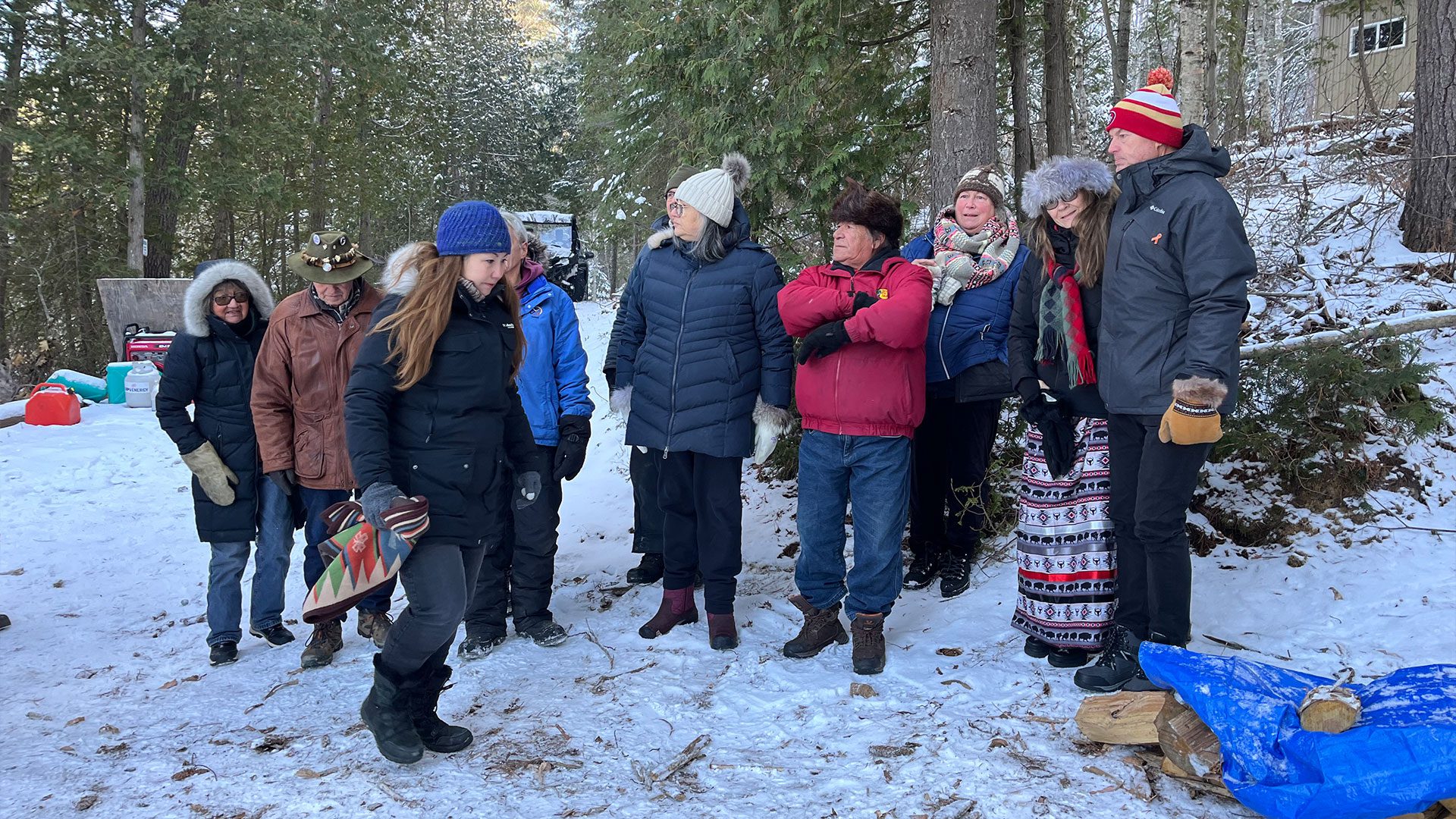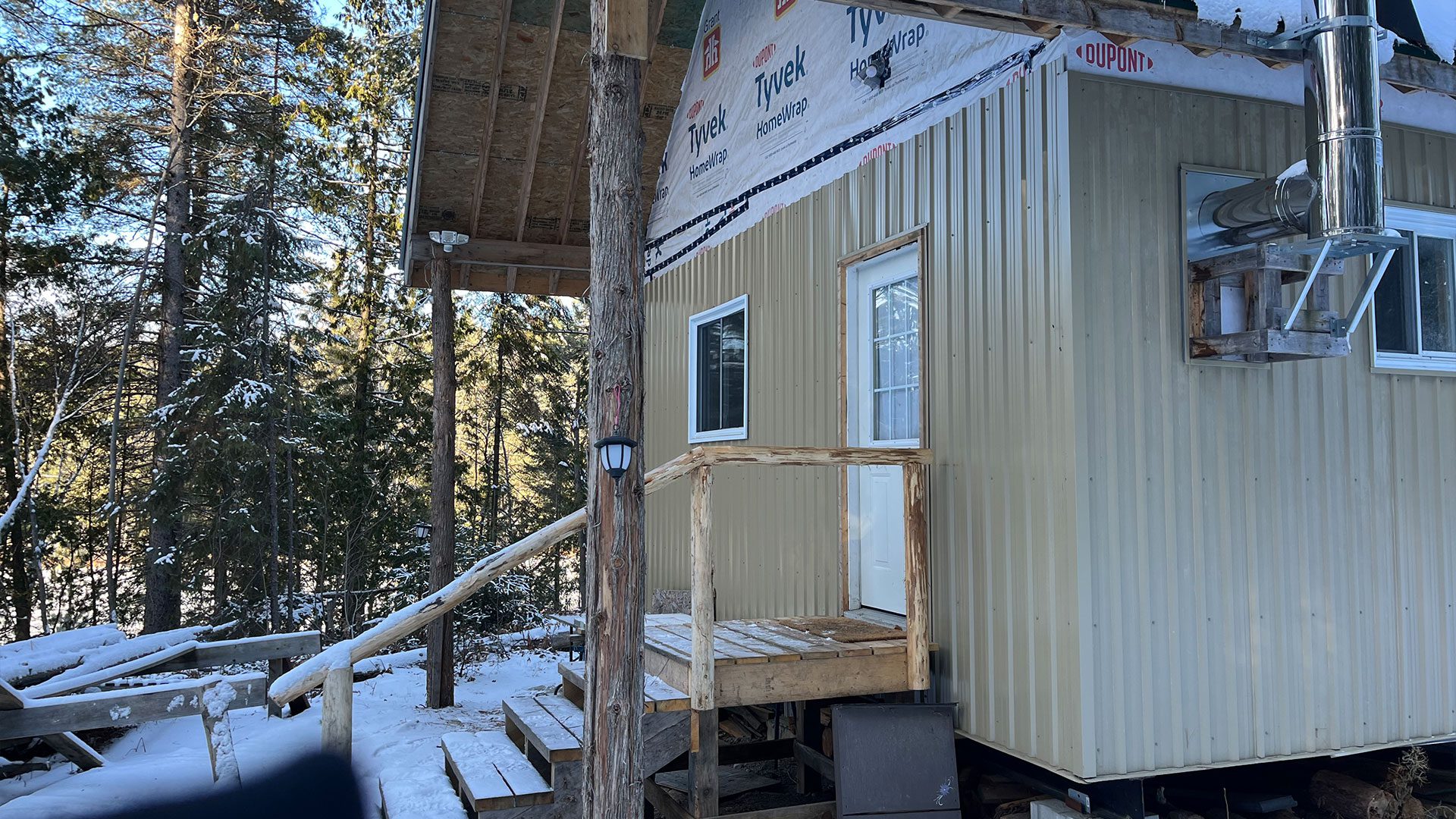Temagami First Nation and Teme-Augama Anishnabai (TAA) is seeking legal action against the province of Ontario and two members of the Métis Nation of Ontario or MNO.
According to the Statement of Claim filed on Nov. 20, Marc and Peter Descoteaux’s “use of the Pond Lake Cabin unreasonably interferes with the TAA’s inherent and constitutionally protected rights.”
In 2017, Ontario and the Métis Nation of Ontario recognized six new Métis communities. Two of them, Abitibi and Mattawa, claimed harvesting rights in their territory called N’dakimenan. It’s not clear which community the brothers call home.
When leadership heard that Marc Descoteaux built a cabin on Pond Lake in 2018, they stepped in.
John Turner is the second chief of Teme-Augama Anishnabai. He said conversations with the Ministry of Natural Resources and Forestry (MNRF) were going no where so last September they set up a peaceful protest camp.
“This notion that an Indigenous group that we’re unaware of can exercise rights in our territory, well that doesn’t make any sense to us at all you know,” he said.

After many years of getting nowhere, they decided the issue would have to go to court.
The claim is challenging the Ontario Métis Harvesting Agreement and the assertion of MNO rights in their homeland.
According to the court document, “The Métis Harvesting Agreement and the Pond Lake Cabin infringe the Temagami First Nation’s inherent and constitutionally protected rights and undermine the Temagami’s jurisdiction over N’dakimenan.”
Elder Alex Mathias has been camping out at the site with other Temagami community members in protest. Mathias came across the cabin when it was being built and reported it to leadership.
He said he’s concerned that if nothing is done, others will others will try to build on their territory.
“There’ll be cabins all over our homelands and its not right for somebody to do things like that, I’m a status Indian, I can’t go build on lake Nipissing.
Temagami Councillor Kim Montroy also questions how this was allowed to happen.
“The Ontario government, the MNR knows there’s no Métis community here. There’s no Métis people, they’ve been dealing with us for 100 and some years, since 1850, we’ve been trying to settle our land claim, and it’s still outstanding,” said Montroy.
Temagami First Nation Chief Shelly Moore-Frappier said the MNRF has allowed the Métis to assert rights where historically there were never any Métis people.
She said what’s even more concerning is how this whole issue connects with Bill C-53, The Metis Self Government Act.
“A major concern is the identity fraud that is happening, using our ancestors as their ancestors, so that is highly problematic and as we can see right now, this Is about land,” she said. “I know that their president, Margaret Froh, keeps on speaking about how this is not about land, but as you can see today this is absolutely about land.”

The statement of claim is asking for an injunction to stop the Descoteaux from using the Pond Lake cabin.
In a written response, MNO President Margaret Froh said “The MNO stands by the Métis communities we represent and the recognition of their harvesting rights in this area, but incidental cabins are a distinct issue. As we have noted previously, the Ontario Ministry of Natural Resources and Forestry has a process to allow the establishment of incidental cabins.
“One of the requirements is that such a structure must clearly be for community use, because Indigenous rights are communal rights. The MNO is undergoing an internal review to determine if this structure meets that requirement. Should our review determine that this structure does not meet the requirement, we will not hesitate to take corrective action. The MNO does not support the construction of structures that are not for communal use. As the fall harvesting season is upon us, I want to remind all Métis harvesters to stay safe and abide by our Harvesting Policy.”
APTN also contacted the Ministry of Natural Resources and Forestry for comment, but have not received a response.
According to Moore-Frappier, the Temagami claim has full support from the Chiefs of Ontario.









